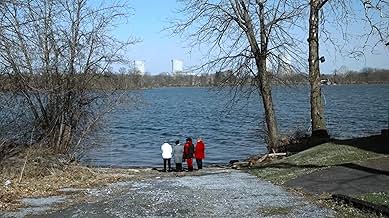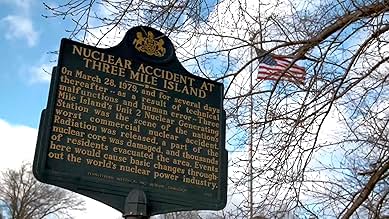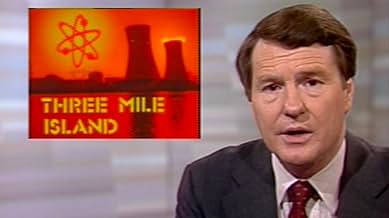अपनी भाषा में प्लॉट जोड़ेंA feminist feature documentary about the 1979 Three Mile Island meltdown with never-before-told stories.A feminist feature documentary about the 1979 Three Mile Island meltdown with never-before-told stories.A feminist feature documentary about the 1979 Three Mile Island meltdown with never-before-told stories.
Joanne Doroshow
- Self - Represented Three Mile Island Alert Community Group
- (as Joanne Doroshow - Attorney)
Lynne Bernabei
- Self - Represented Three Mile Island Alert Community Group
- (as Lynne Bernabei - Attorney)
Jack Herbein
- Self - Vice President, Metropolitan Edison
- (आर्काइव फ़ूटेज)
- (as John Herbein)
फ़ीचर्ड समीक्षाएं
This film has been shown at two festivals so far, one in NYC, one in DC. I attended both, and in both it received standing ovations from the audience. Meticulous in reporting the science and the facts, it does an even better job capturing the emotional tension of four mothers taking on the federal government and corrupt corporations that were pushing the fake narrative that there was "nothing to see here" at Three Mile Island.
Calling the corporation "corrupt" is no exagerration, since court cases the women brought proved a pattern of falsifying documents, cheating on licensing exams, and lying to regulators.
Those government regulators also continue to lie to the public about the radiation released at TMI and the health effects on the downwinders, again as documented in the movie.
Anyone who is thinking about drinking the radioactive kool-aid the Biden administration is offering in the form of tax payer support for the nuclear industry needs to watch this movie and learn about its decades of lying and cover ups and cheer at the bravery of the women who exposed it.
Calling the corporation "corrupt" is no exagerration, since court cases the women brought proved a pattern of falsifying documents, cheating on licensing exams, and lying to regulators.
Those government regulators also continue to lie to the public about the radiation released at TMI and the health effects on the downwinders, again as documented in the movie.
Anyone who is thinking about drinking the radioactive kool-aid the Biden administration is offering in the form of tax payer support for the nuclear industry needs to watch this movie and learn about its decades of lying and cover ups and cheer at the bravery of the women who exposed it.
This enlightening documentary exposes the political, emotional and physical effects on those living in the vicinity of the 1979 Three Mile Island Nuclear Disaster. The caring, concern of producer, Professor Heidi Hutner, explains how these four empowered mothers grappled with mis and the lack of information and so become politicized in order protect and preserve the welfare of their families. The facts and legal entanglements of these issues are sincerely recounted by the reporter and lawyers who attempted to uncover the truth. The women in this film speak loud and clear and still the physical effects remain obscured by the nuclear industry. These women's legacy to us, as women, and in fact as humans, is our own mission for today to seek truth about nuclear power, before we too have to deal with the fallout.
This movie tells the story of the women who fought back against the official response to the disaster at Three Mile Island. Focusing primarily on the efforts of four women who led the local community's protest, and a fresh-out-of-law-school lawyer who took a lawsuit all the way to the Supreme Court, it is both an indictment of the nuclear industry and its regulators and a personal story about real people.
I saw this at a local film festival and was expecting an amateur production or agitprop. But it's anything but. Rather, it is expertly filmed and carefully edited, splicing slice-of-life portraits, interviews with experts, and historical footage. It makes a compelling case that not only was the leak at Three Mile Island a cover-up that led to drastic spikes in cancer rates upwind of the site, but also that the official response to the leak was a travesty of justice against, and a personal tragedy for, the victims of the accident.
But what makes this film so compelling is how human it is. I found myself pulled into the lives of the people in this community, saddened at their tragedy, rooting for them as underdogs, and uplifted by their dogged spirit. The audience around me was rapt, sometimes in tears, and standing in applause at the end.
I saw this at a local film festival and was expecting an amateur production or agitprop. But it's anything but. Rather, it is expertly filmed and carefully edited, splicing slice-of-life portraits, interviews with experts, and historical footage. It makes a compelling case that not only was the leak at Three Mile Island a cover-up that led to drastic spikes in cancer rates upwind of the site, but also that the official response to the leak was a travesty of justice against, and a personal tragedy for, the victims of the accident.
But what makes this film so compelling is how human it is. I found myself pulled into the lives of the people in this community, saddened at their tragedy, rooting for them as underdogs, and uplifted by their dogged spirit. The audience around me was rapt, sometimes in tears, and standing in applause at the end.
This film fills a critical void in the coverage of Three Mile Island. While it is tempting to let TMI fade into the past, the impact it had on nearby residents continues to this day. Hutner has done a masterful job of telling the stories of these women and integrating it with the science that suggests that harms to health might have been greater than understood at the time. That combination, the stories of the victims together with cutting edge science is not so easy to get right and she has done it masterfully. While current research continues and the full answers are not yet known, it is appropriate to take stock and consider the risks of nulcear power even as some are promoting it as an alternative to fossil fuel combustion.
10jessi9
I learned so much from "Radioactive" about the Three Mile Island disaster. I left the movie with a new perspective on the disaster itself. The film presents information I'd never heard before about the radiation exposure that people experienced. It also sheds light on the government and industry response to the disaster. The film mentions ongoing scientific research into the lasting effects of the exposures, and I am curious to learn more as that research develops. It's a must-see for anyone who remembers Three Mile Island, who lives near a nuclear power plant, or who is interested in nuclear policy.
टॉप पसंद
रेटिंग देने के लिए साइन-इन करें और वैयक्तिकृत सुझावों के लिए वॉचलिस्ट करें
विवरण
- चलने की अवधि1 घंटा 16 मिनट
- रंग
इस पेज में योगदान दें
किसी बदलाव का सुझाव दें या अनुपलब्ध कॉन्टेंट जोड़ें

टॉप गैप
By what name was Radioactive: The Women of Three Mile Island (2022) officially released in India in English?
जवाब

































